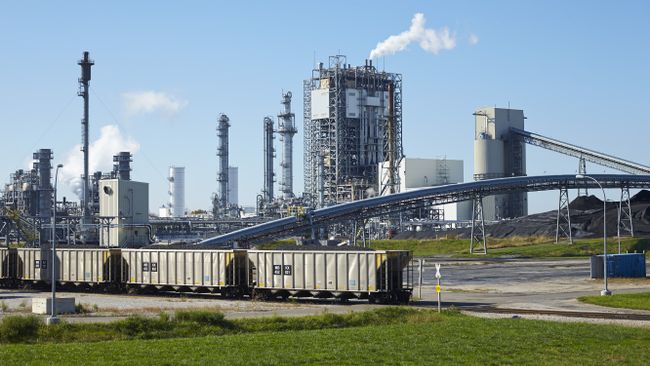Company selects 15 nonprofit organizations to receive funds is a great example of Corporate Social Responsibility (CSR)

The Duke Energy Foundation has awarded more than a quarter-million dollars to 15 nonprofit organizations committed to protecting and restoring Florida’s vital natural resources.
The grants will fund programs that protect and rehabilitate Florida wildlife, as well as conserve and restore native habitats. The grants also will fund water quality and pollinator studies that increase biodiversity and help preserve Florida’s natural resources.
“Protecting, restoring and rehabilitating Florida’s environmental resources and native species enables our communities to thrive,” said Catherine Stempien, Duke Energy Florida state president. “We’re proud to partner across the state with organizations that share our commitment to the environment, while we continue to provide reliable service in a sustainable way.”
This year’s grant recipients are:
- Audubon Florida’s Bald Eagle Conservation Program: to protect, research and rehabilitate bald eagles through the Audubon Center for Birds of Prey Eagle Watch Program.
- Bok Tower Gardens’ Restoration of Sandhill and Scrub Habitat: to restore critically imperiled habitats in Polk and Lake Counties that are home to federally and state endangered plant species.
- Clearwater Marine Aquarium’s 2020 Sea Turtle Rescue, Rehabilitation and Release and Conservation Program: to protect endangered sea turtles and care for injured and sick sea turtles with the goal of returning them to their ocean home.
- Florida Native Plant Society’s Conservation and Habitat Restoration for Two Endangered Mint Species: to monitor and restore two of Florida’s endangered mints in Marion and Lake counties.
- Florida Wildflower Foundation’s Big Bend Roadside Surveys to Discover Wildflower Areas as Pollinator Habitat: to survey roadsides and adjacent easements in Florida’s Big Bend region for wildflower habitats that can be economically managed to build insect pollinator habitats and pathways.
- Florida Wildlife Corridor’s Ranch to Ridge Expedition: to support the Florida Wildlife Corridor’s 2019 Ranch to Ridge Expedition and documentary film to educate and inspire the public to understand, value and help conserve wild Florida.
- Florida Wild Mammal Association’s Wildlife Rehabilitation and Education Program: to help fund the wildlife hospital open year-round that provides care to more than 1,000 animals yearly that are sick, orphaned or injured until well enough to release.
- Franklin’s Promise Coalition Inc.’s Conservation Corps of the Forgotten and Emerald Coasts: to provide young adults with job training, academic programming, leadership skills and additional support through a strategy of service that conserves, protects and improves the environment, as well as community resilience.
- Inwater Research Group Inc.’s Citrus County Sea Turtles: Sea Turtle Conservation: to highlight the importance of sea turtle habitats near Crystal River and Homosassa, while teaching local students and teachers about this incredible resource.
- Oakland Nature Preserve Inc.’s Upland Preserve Restorations for Gopher Turtles and Other Species: to restore the upland preserve and continue to provide habitat suitable for the endangered gopher tortoise populations and their commensal species.
- Rainbow River Conservation’s Rainbow River Wood Duck Box Maintenance and Upgrade Project: to upgrade and maintain 50 wood duck boxes along the Rainbow River in Marion County, which have been 98% productive in hosting baby broods of ducks after 24 years.
- Trout Lake Nature Center’s Exploring the Natural World: to provide nature-based programs for students and adults in Lake County and surrounding areas through on-site field experiences.
- University of Florida: Florida Museum of Natural History’s Citizen Science: Common Loon Spring Migration Tracking and Education: to train citizen scientists who will survey the migration of Common Loons, vulnerable wintering birds; data to be used to educate the public and understand migratory pathways.
- West Pasco Audubon Society’s Bird and Habitat Conservation in Jay B. Starkey Wilderness Park: to conserve bird species and habitat in Jay B. Starkey Wilderness Park by building a bird blind to provide cover for data collection, observation and a non-disruptive encounter with wildlife.
- West Volusia Audubon’s Sustainable Landscaping Principles for Homeowner Associations, Builders and Developers: to train homeowner associations, developers and builders on how to utilize sustainable Florida landscaping techniques to reduce the need for fertilizer and irrigation, build a demonstration garden to showcase techniques, develop a sustainable plant guide and conduct follow-up surveys.
- Withlacoochee Aquatic Restoration’s Water Quality Study for Restoration Plan Completion: to gather data to complete the design of a restoration plan for the Withlacoochee River, as a final step of a two-year water quality monitoring study
“Thanks to the support of Duke Energy, Clearwater Marine Aquarium is able to continue the extraordinary work done through our Sea Turtle Conservation Program,” said David Yates, Clearwater Marine Aquarium CEO. “We’re proud to have a partner that values our mission and works to build a better environment for future generations.”
The Duke Energy Foundation provides philanthropic support to meet the needs of communities where Duke Energy customers live and work. It has invested $2.8 million in 181 Florida nonprofits this year. More information about the Foundation and its Powerful Communities program can be found at duke-energy.com/foundation.

